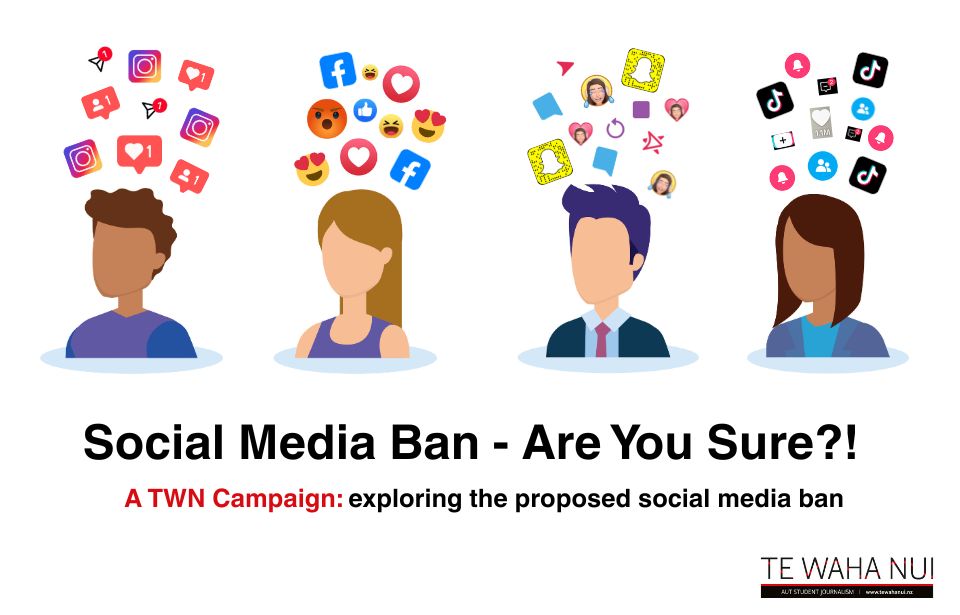Social media may help to fight youngsters' election apathy
• May 21, 2025

Managing Director of Independent Election Services Limited Dale Ofsoske says social media content needs to show young people why local government is relevant to them. Photo: Luke Fisher
Social media has untapped potential to engage more young people in local politics, according to experts.
In 2022, only 26 per cent of registered 18–25-year-olds voted in Auckland’s local elections.
Youth Advisory Panel member Ayla Johnstone says social media is not used nearly enough at the local level.
“I think it can be upped 3,000 per cent.”
Johnstone, who has a background in youth community engagement, says partnering with influencers would be a good first step.
“Instead of getting one huge influencer, get a couple that resonate with the smaller groups … people who actually go into those communities, interact with them, and are highly respected.
“Young people don't want things that are boring.
“[We need] genuinely engaging content that focuses most on the engagement, on gaining traction, and on communicating with young people, with sprinkles of information in there.”
A 2021 study of social media use by local governments in New Zealand found social media channels often lacked useful content, a clear strategy, and opportunities for public engagement.
In 2022, only 13 per cent of candidates were aged 18-34, despite making up 35 per cent of Auckland’s population.
Independent Election Services Limited Managing Director Dale Ofsoke has a clear message for candidates.
“Use social media, you're going to target younger people immediately.
“Get your message out there, it's free,” he says.

TWN has launches its 2025 social media campaign exploring the proposed social media ban for under 16s.
Ofsoke says young people don’t vote because they are unaware of the Council’s impact on their everyday lives, noting that youth do not see themselves reflected in local elections.
His service helps run elections for 21 councils across Aotearoa.
Auckland Council’s new platform, Buzzly, aims to “bridge a gap in civic engagement and policymaking involving young people, particularly Māori and Pasifika.”
“It targets the voice of youth and establishes an inclusive space for rangatahi to share ideas using creative challenges, rewarding participation and ensuring youth insights are heard and valued by decision-makers.”
Buzzly posts videos across a variety of platforms, including Instagram and TikTok, which usually introduce issues and encourage viewers to have their say on buzzly.nz.
A past ‘challenge’ asked youth how they’d approach Auckland’s water future and gave out cash prizes for 73 submitted ideas.
Franklin is the only local board with an active Instagram or TikTok account.
Johnstone says local boards need to increase their social media presence as their decisions have a significant impact on young people.
“Social media is free and it's easy and it's ridiculous to write it off because it's actually not that hard.
“You can get young people to come and run your social media for free, and the fact that you're not doing that makes you lazy and makes you the problem.”

Whakatairanga ka tika, whakamaua ngaa mita
AISHA CAMPBELL (NGĀTI RUANUI, NGĀ RAURU, NGĀ RUAHINE, TE ATIAWA, TARANAKI) • October 28, 2025

Supporters hope new council will save Western Springs Speedway
Savannah Lendich Jonkers • October 8, 2025


Whakatairanga ka tika, whakamaua ngaa mita
AISHA CAMPBELL (NGĀTI RUANUI, NGĀ RAURU, NGĀ RUAHINE, TE ATIAWA, TARANAKI) • October 28, 2025

Supporters hope new council will save Western Springs Speedway
Savannah Lendich Jonkers • October 8, 2025
